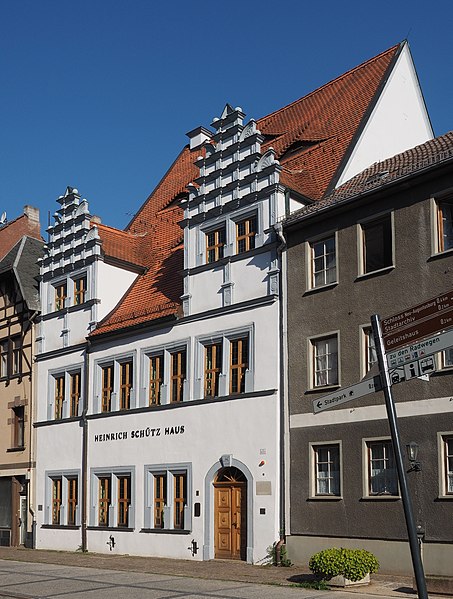Psalmen Davids is a collection of sacred choral music, settings mostly of psalms in German by Heinrich Schütz, who had studied the Venetian polychoral style with Giovanni Gabrieli. Book 1 was printed in Dresden in 1619 as his Opus 2. It comprises 26 individual settings, which were assigned numbers 22 to 47 in the Schütz-Werke-Verzeichnis (SWV). Most of them use the text of a complete psalm in the translation by Martin Luther.
Title page of the first edition, 1619
Heinrich Schütz was a German early Baroque composer and organist, generally regarded as the most important German composer before Johann Sebastian Bach and one of the most important composers of the 17th century. He is credited with bringing the Italian style to Germany and continuing its evolution from the Renaissance into the early Baroque. Most of his surviving music was written for the Lutheran church, primarily for the Electoral Chapel in Dresden. He wrote what is traditionally considered the first German opera, Dafne, performed at Torgau in 1627, the music of which has since been lost, along with nearly all of his ceremonial and theatrical scores. Schütz was a prolific composer, with more than 500 surviving works.
Heinrich Schütz by Christoph Spätner, c. 1660 (Museum of Musical Instruments of Leipzig University)
Heinrich Schütz House, the composer's birthplace in Bad Köstritz, now a museum
Heinrich Schütz House, the composer's home in Weißenfels, now a museum.
Rembrandt: Man with a Sheet of Music, 1633 (National Gallery of Art, Washington, D.C., 2014.136.41; formerly in the Corcoran Gallery of Art, William A. Clark Collection). In Schütz research literature, regarded as inauthentic and not portraying Heinrich Schütz.





